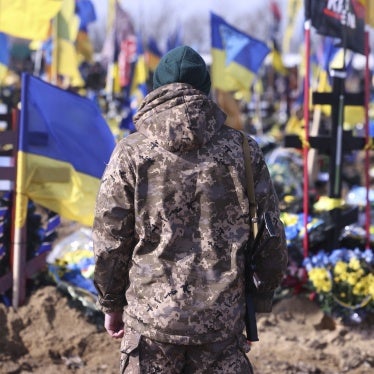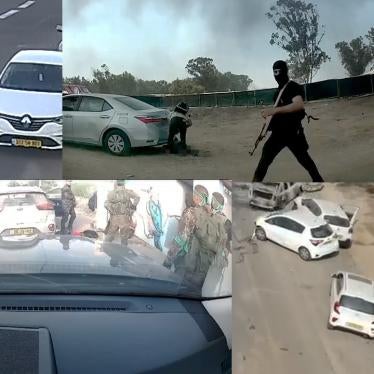Human Rights Watch remains extremely concerned about the human rights situation in Sudan. We urge all members of the Human Rights Council to acknowledge the gravity of the human rights violations affecting the people of Sudan and to renew the mandate of the Special Rapporteur. Her role is crucial in monitoring the human rights situation in Sudan and reporting to the Council, as well as in providing much needed support to both the Government of National Unity (GNU) and the Government of Southern Sudan (GoSS).
Human Rights Watch is alarmed by the continuing lack of civilian protection and rule of law mechanisms in Darfur and Southern Sudan in the context of ongoing insecurity. Hundreds of civilians have already been killed in 2009 in inter-ethnic fighting and clashes between the northern-based Sudanese Armed Forces (SAF) and southern Sudanese Peoples Liberation Army (SPLA), and thousands more have been forcibly displaced. These forces clashed again in February 2009 at Malakal in Southern Sudan causing further civilian casualties.
The impact of recurrent fighting and insecurity on civilians is aggravated by the complete lack of accountability for significant human rights violations. No individual has been held to account for crimes committed during earlier fighting between SAF and SPLA at Abyei in May 2008 that killed scores of civilians and caused the entire town to flee. Human Rights Watch endorses the Special Rapporteur's concern about the lack of political will to ensure justice and accountability for serious violations of human rights and urges the GNU and the GoSS to fully investigate all allegations of human rights violations and hold those responsible to account.
Human Rights Watch is also gravely concerned about the fate of human rights defenders throughout Sudan. During the past year, National Intelligence and Security Services (NISS) officers have harassed and arbitrarily arrested and detained many human rights defenders in Sudan. Human Rights Watch documented a number of cases, including the NISS's arrest, detention and severe beating in November 2008 of Amir Suliman, Osman Hummaida and Abdelmoneim Aljak, all high-profile human rights activists. Many human rights defenders have now fled Sudan fearing similar mistreatment.
GNU authorities have also increased restrictions on the media, with NISS officers censoring every edition of newspapers and harassing and arresting journalists. The scope of information available to people in Sudan is more and more restricted. The government not only censors commentaries on human rights, accountability and the work in Sudan of the International Criminal Court, but also muzzles the media on other issues that the government considers sensitive.
These restrictions on freedom of expression and harassment of human rights defenders will become increasingly important as Sudan moves towards national elections in February 2010. The elections offer a significant opportunity for realizing civil and political rights in Sudan, but only if the GNU and the GoSS urgently take steps to protect freedom of expression and association and ensure full and free participation by political parties and voters. The role of the Special Rapporteur will be fundamental in monitoring these issues in the run-up to these important elections. Discontinuing or limiting the Special Rapporteur's mandate at this crossroads would represent a deplorable and irresponsible abrogation of the Council's responsibility to support human rights in Sudan.
Human Rights Watch recognizes that the GNU and Goss have taken some very preliminary steps in the field of legal reform. However, these limited positive developments have yet to translate into concrete changes on the ground. The report on the status of implementation of the recommendations of the Group of Expert on Darfur underlines this concern as the GNU has implemented few of the report's recommendations, even in part. The GNU has previously committed to fulfil each of the listed obligations, and the Human Rights Council should continue to monitor and support their implementation. The Special Rapporteur has encouraged and supported the government in taking the initial steps it has, and the Council should extend the mandate of the Special Rapporteur for at least one year to ensure she is able to continue with these critical reforms.
Human Rights Watch asks the following questions:
- How does the Special Rapporteur assess the impact of the attacks against human rights defenders and the severe limitation on freedom of expression in the February 2010 electoral process?
- Can the Special Rapporteur suggest any additional support to speed up implementation of the recommendations of the Group of Experts on Darfur, in particular in ending impunity for human rights violations?






